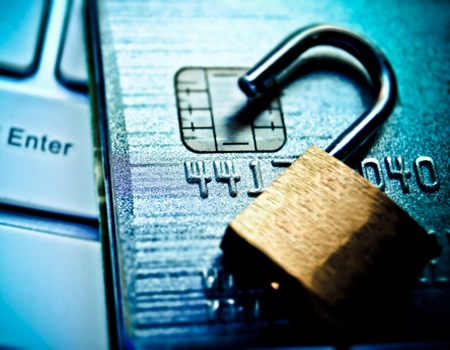Protect Yourself from Identity Theft

Identity theft is one of the fastest growing crimes in the country. As consumers, we must be armed with the tools and resources to prevent and/or remedy identity theft situations. In an effort to protect yourself from identity theft, remember the U.S. Department of Justice’s acronym SCAM.
| S | Be stingy about giving out your personal information. |
| C | Check your financial information regularly. |
| A | Ask for your free credit report at least annually by visiting www.AnnualCreditReport.com. |
| M | Maintain careful records of your banking and financial accounts. |
However, following this acronym is not a fool-proof plan for identity protection. In the event that you notice suspicious activity on your credit report, be proactive and take action immediately:
- Freeze Your Accounts. Call the companies where you know fraud occurred and request the closing or freezing of your account(s). Make sure the bogus charges are removed.
- Update Online Passwords. A best practice is to change passwords on all of your online accounts and especially your email, as it is often the entry point for many identity theft situations. Each of your online account passwords should vary (numbers, letters and special characters). Note: This is a good practice even if you have not been victimized.
- Place a Fraud Alert. Contact the fraud department of one of the three credit bureaus to place a free, 90-day fraud alert. The reporting bureau will notify the other two companies on your behalf. The contact numbers are as follows:
Equifax – 1.800.525.6285
Experian – 1.888.397.3742
TransUnion – 1.800.680.7289
- Report Identity Theft to the Federal Trade Commission (FTC). Access the FTC website at www.identitytheft.gov/Assistant to walk through the automated steps of creating your Identity Theft Report and recovery plan.
- Correct Your Credit Report. You also will want to correct your credit report by contacting each of the three credit bureaus to block fraudulent information from affecting your credit report.
- Additional Protection. Finally, you may consider implementing additional protection by adding an extended fraud alert, a credit freeze or by utilizing an identity theft protection service such as LifeLock to help prevent further misuse of your personal information. Remember, identity theft can happen to anyone. Following these recommendations may help you avoid identity theft or quickly remedy any problems.
